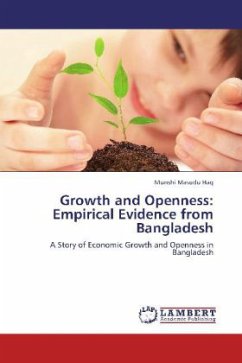
Growth and Openness: Empirical Evidence from Bangladesh
A Story of Economic Growth and Openness in Bangladesh
Versandkostenfrei!
Versandfertig in 6-10 Tagen
32,99 €
inkl. MwSt.

PAYBACK Punkte
16 °P sammeln!
The study seeks to investigate empirically the direction and shape of causality among trade openness, investment and economic growth using data for Bangladesh during the period 1980-2006. Although in most cases, statistically reliable evidence of cointegration is sufficient to testify the existence of a long-run relationship among the variables of a particular model, Granger causality test provides a more dependable tool for determining the direction of the causality in particular. In order to achieve the objective of the study, modern econometric methodologies such as cointegration tests and ...
The study seeks to investigate empirically the direction and shape of causality among trade openness, investment and economic growth using data for Bangladesh during the period 1980-2006. Although in most cases, statistically reliable evidence of cointegration is sufficient to testify the existence of a long-run relationship among the variables of a particular model, Granger causality test provides a more dependable tool for determining the direction of the causality in particular. In order to achieve the objective of the study, modern econometric methodologies such as cointegration tests and the Granger causality tests have been applied across all the variables of our model using a trivariate framework of regression equations. The test results indicate that there exists a long-run equilibrium relationship between trade openness, national income growth and total investment. Furthermore, empirical results of Granger causality confirm that there exists unidirectional causality between economic growth and investment; between trade openness and economic growth; and between trade openness and investment.




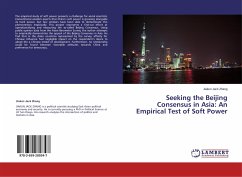
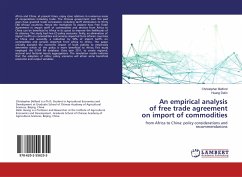
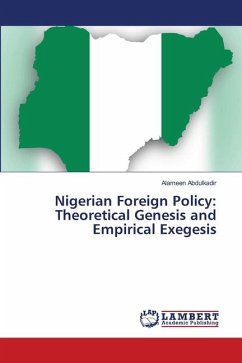
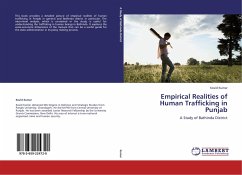
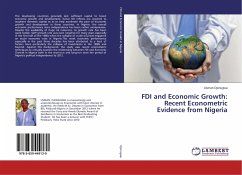
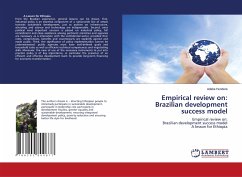
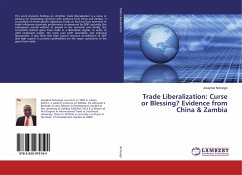

![Reports and Evidence of the Special Committee of the House of Assembly of Lower Canada [microform] Cover Reports and Evidence of the Special Committee of the House of Assembly of Lower Canada [microform]](https://bilder.buecher.de/produkte/65/65528/65528750n.jpg)